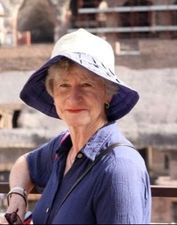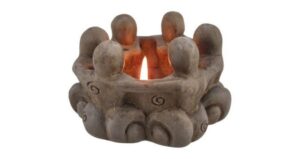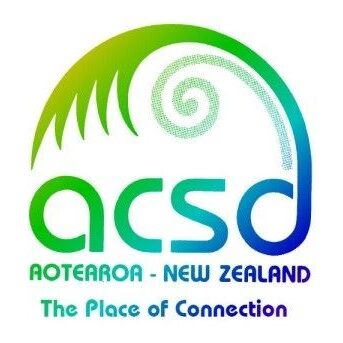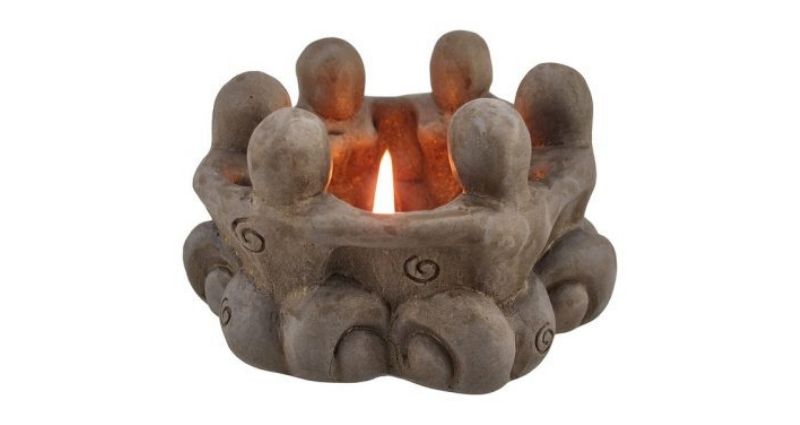Some thoughts presented to the 2021 ACSD BGM 4th September 2021 by Jeannie Martin Blaker

What I am putting forward is a question for discussion around our membership:
I am putting this question forward because fewer than 20% of graduates from SD programmes go on to become members of ACSD. This was true of the cohort I trained with of which there are now 2 remaining in ACSD. So, how and where are SD Formation programme graduates sharing who they have become and the skills they have learned in helping people pay attention to the movements of God in their lives?
These questions have remained for me since I started teaching on the SGM training in 2006 and wondered why we are not seeing the graduates move on to ACSD.
I brought this up at the previous Exec meeting where it was agreed that I could bring this to this BGM to raise awareness and open the discussion. I was therefore delighted when the Exec received a letter from Sue Pickering about this same issue. So I have incorporated some of her thoughts into this.
So what are the stumbling blocks to moving to membership of ACSD?
Currently to become a full member we sign a document that confirms we have completed 50 hours of supervised one-to-one contracted practice as a SD post graduation. This 1-1 contracted agreement is a condition of full membership. And it is named in the conditions of Associate member that they are working towards the 50 hours of 1-1 supervised practice. When the Exec interviews an applicant for membership we ask about the 1-1 practice.
Who finds this easy to fulfil?
- Those nearing retirement
- those who are financially secure and have time to give to more people on a 1-1 basis so are not daunted by the prospect of the 50 individual hours to complete
- No wonder our membership is older, white and female!
Who would find this a stumbling block?
- Those who work in a context which does not fit this model of 1-1, contracted SD
- The majority of graduates who may be:
- chaplains work in prisons, hospices, aged care and educational institutions
- clergy working within their own parish
- Counsellors who also offer SD
- pastoral workers
- those offering small groups, quiet days and contemplative events
- Teachers working with colleagues and students
- Nurses caring for patients
- All the graduates of SD programmes are returning to their lives and work better equipped to really listen to others, noticing God at work in the world around them.
- BUT this amazing work over the whole of Aoteaora done by the graduates of programmes is not recognised by ACSD because our criteria is the on-going contracted 1-1 commitment

I was disappointed to hear after the speed SD 25 of us offered to 100 Presbyterian youth leaders in one afternoon in 2015 – when some young pacific women told me they would love direction but couldn’t afford it!
How many of us could offer SD to a group? wouldn’t that be a marvellous ministry – but would that be recognised by ACSD? !
So is the reason that so many graduates of SD formation programmes do not apply to ACSD for membership because there is no category which recognises what they are doing in their work context? And the 50 hours on-going 1-1 expectation doesn’t fit their reality – even though they are practicing the art of SD in their work and have opportunity to speak with and listen to a much broader spectrum of society than SDs whose main work is in 1-1 encounters.
What would change if such graduates were included within ACSD ranks?
- The new members would feel included, acknowledged and honoured
- Age, ethnicity and gender balance of our cohort would be much wider
This has been a goal of ACSd for many years – to widen age, ethnicity and gender balance. i believe that our tight criteria has been part of the reason for there being no change in the fact that our membership is mainly white, older female.
All members would be encouraged and amazed at the work of God across NZ as we shared stories of what is happening. Do you know that one of SGM graduates is CEO of prison chaplaincy which now requires all chaplains to have Sd as well as supervision. I understand that most of us have around 5 directees – we cannot provide for the growing need!
So what might need to change in order for those graduates to belong to ACSD, to contribute to ACSD and to receive PD from ACSD?
Sue Pickering has some suggestions:
- Acknowledge and support graduates who find themselves in ministries which reach people ‘on the edges’ at a time when spiritual hunger and numbers of churchless Christians continue to expand
- Provide a membership category that includes those who have relevant spiritual direction formation but are practicing in other contexts (it would need to be clear on the website whether any of these were available for others to approach)
- Encourage ACSD applicants to speak of the contexts in which God is already using their spiritual direction/other relevant formation/experience –
- to provide appropriate professional development options within the Biennial Training event.
So where to from here?
- Jeannie presented this at the BGM and there was some discussion
- Jeannie welcomes comments send them to her Jeannie Martin Blaker jmartin.blaker@gmail.com
- talk about this in your regional groups
- Perhaps we could have an online seminar to discuss it further
- If it seems appropriate we can bring a motion to the next BGM
Question for discussion
Shall we add another category of membership or broaden our definition of SD?
Would members like exec to explore these options?


